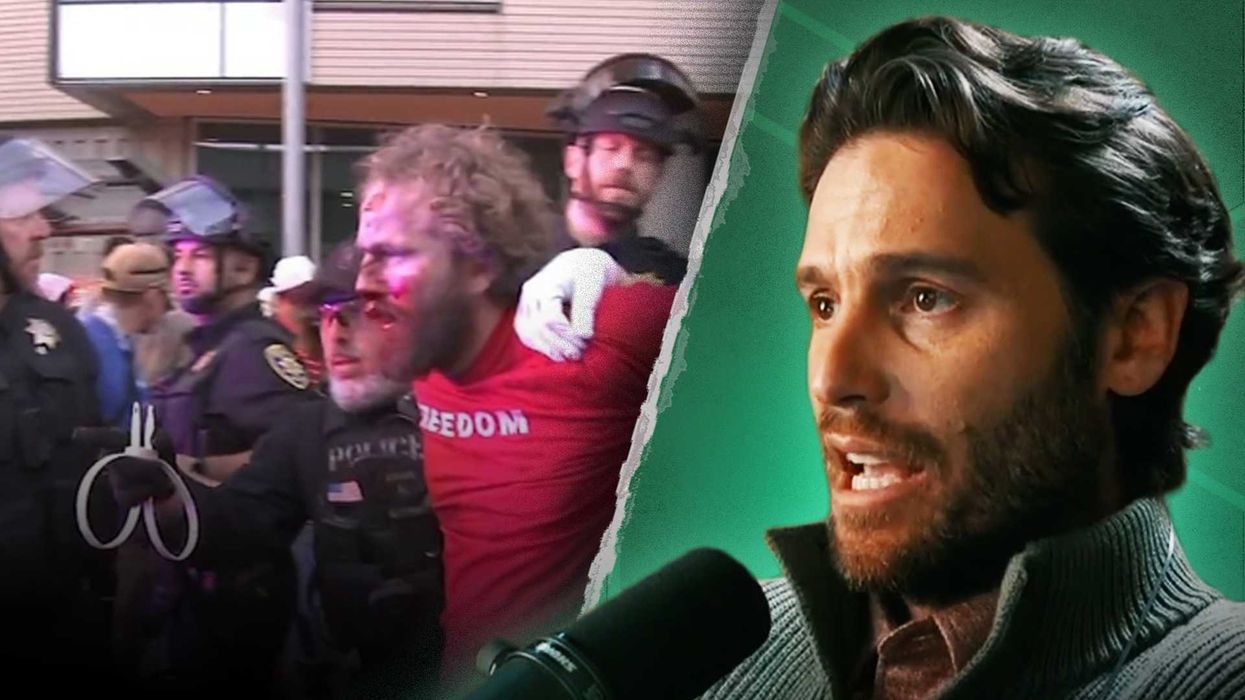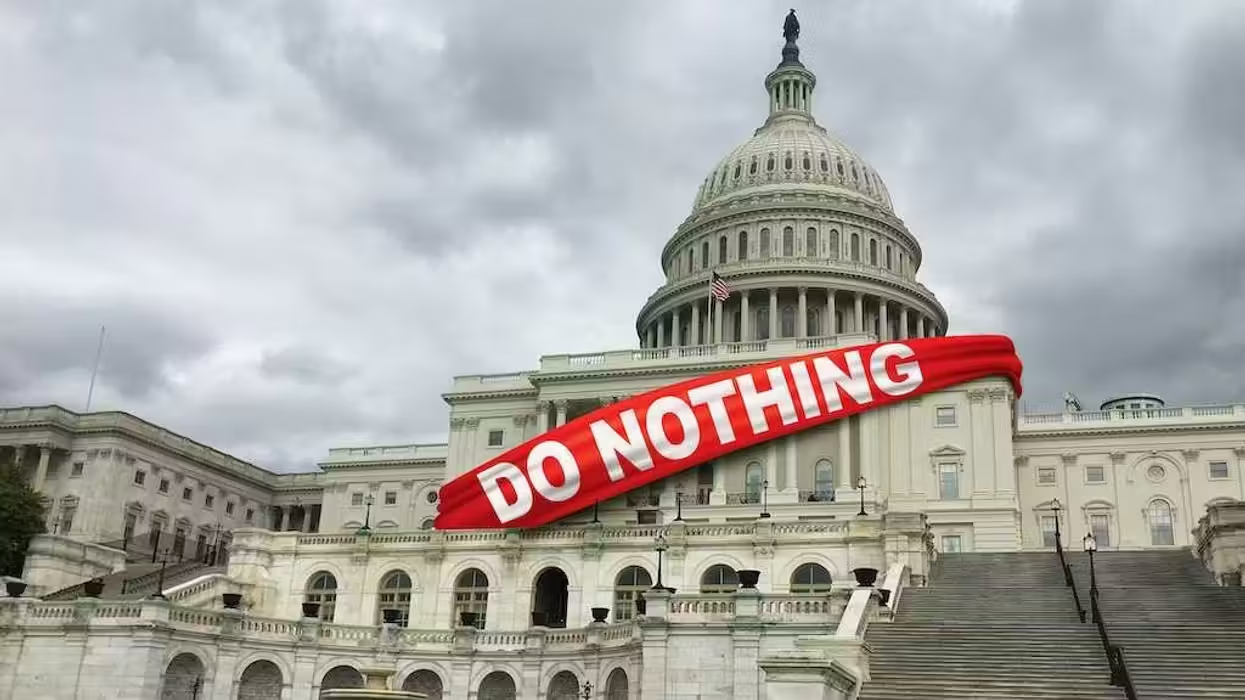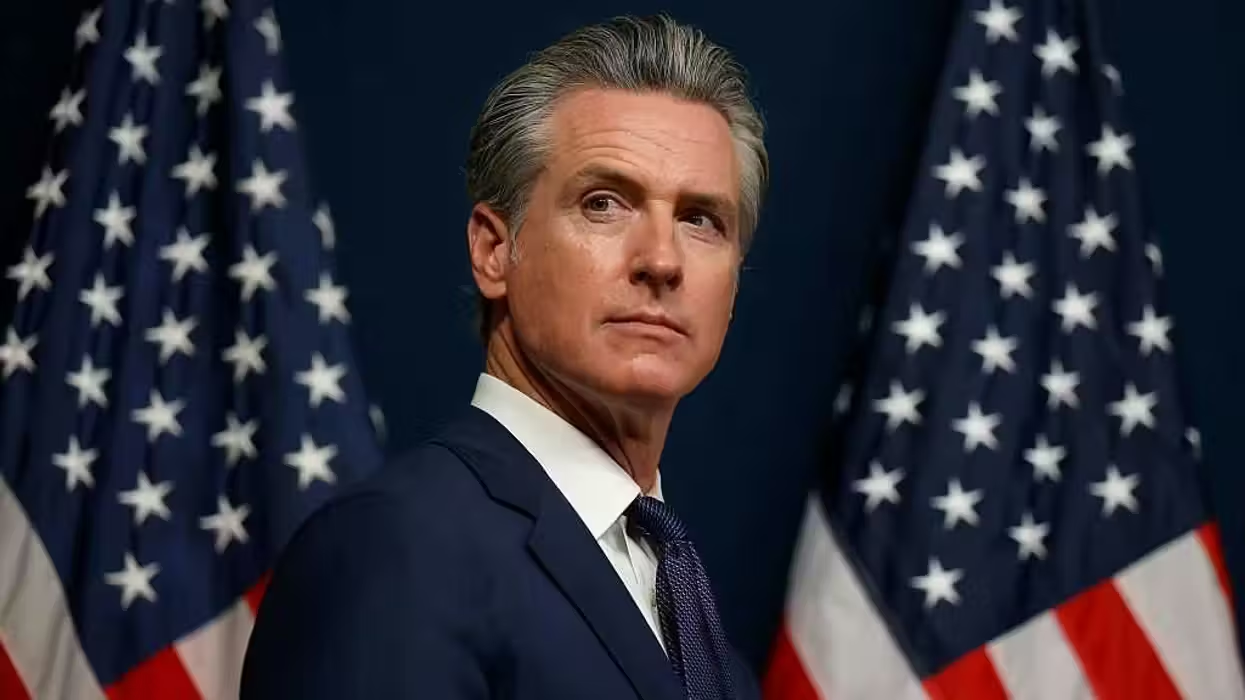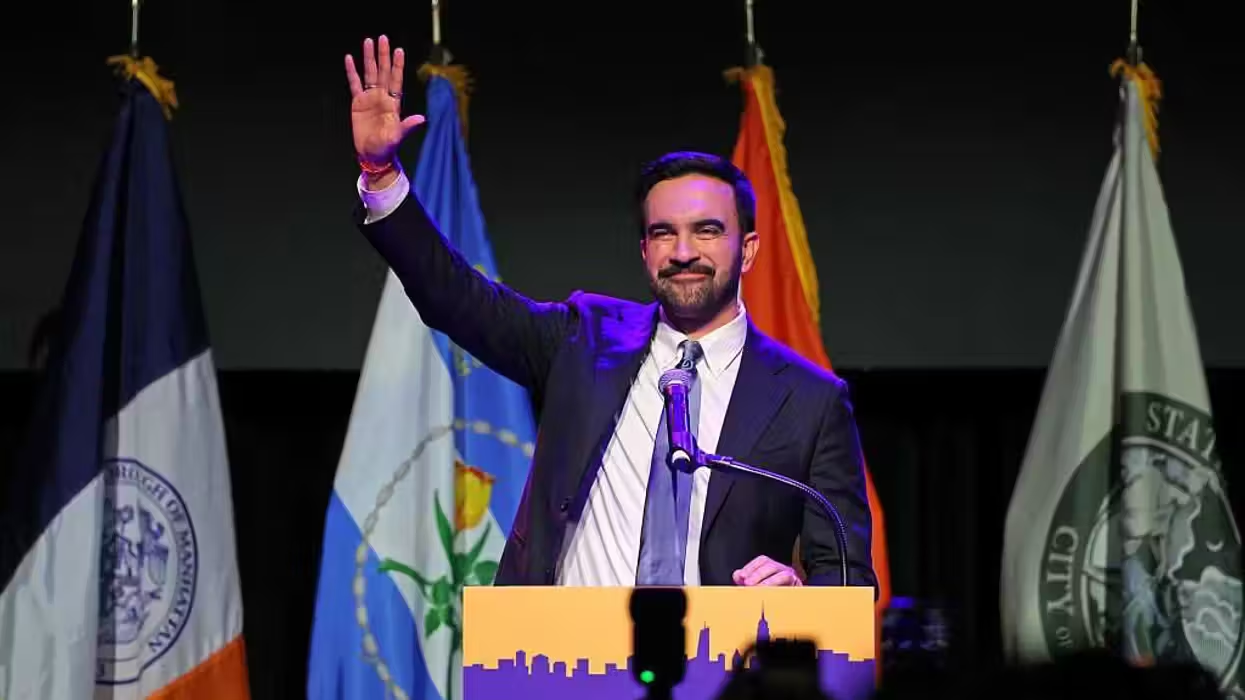Retired U.S. Army Major General Jerry Curry gleaned tremendous insights into the Muslim mindset through his military experiences, both as a junior and senior officer. These insights, ignored by our current president, need to be understood by the next one.
As a junior officer, Curry developed friendships with his Arab military counterparts from among the allied nations. His friendship with one officer in particular prompted him to query why Arabs, repeatedly whipped by Israel in Middle East wars, continued to initiate them against their heavily out-numbered neighbor.
 In this photo taken Oct. 28, 2014, a Jordanian man walks past a graffiti depicting the flag of the Islamic State group with Arabic that reads "their is only one God and Muhammad is his prophet," in the city of Ma'an, Jordan. (AP Photo/Nasser Nasser)
In this photo taken Oct. 28, 2014, a Jordanian man walks past a graffiti depicting the flag of the Islamic State group with Arabic that reads "their is only one God and Muhammad is his prophet," in the city of Ma'an, Jordan. (AP Photo/Nasser Nasser)
Acknowledging a poor winning record, the young Arab officer proudly stated, “But have you noticed that with each loss we get better?” He then added a comment causing Curry to realize little hope exists for future change in the Arab mindset. “Sometime in the next thousand years,” the Arab said, “we will win.”
Such has been the Muslim mindset for 1,400 years since Islam’s founding, and so shall it remain. Why should we expect, after seventy generations of Muslim-on-Muslim and Muslim-on-non-Muslim violence that the religion’s ideology would differ today or, for that matter, any time within the next thousand years?
Another insight Curry shared occurred in the first Gulf War’s aftermath. A celebration was held as U.S. forces quickly and decisively defeated Saddam Hussein’s Iraqi army, assisted by the armies of our Arab allies. After the handshaking and hugging ended, Curry reported, a senior Arab general got serious. He wanted to set the record straight for the senior American generals present.
Having fought together and won, “you feel that makes us brothers,” he said. “But that is not the way it is in my world.”
The Arab general then explained an undeniable truth about the Muslim/non-Muslim relationship, warning:
“There will be no tomorrow for us jointly. No matter how much you have helped my country and you came and helped us when we desperately needed your help and no matter how friendly you feel toward us, we are still Muslims and you are still Christians. That means that in our eyes, we can never be brothers. I'm sorry, but to us, you will always be Infidels!”
Left unsaid by the Arab general but understood by those familiar with the Quran’s mandate is the fate to which infidels are thusly condemned: conversion to Islam or death.
This was not an Islamic extremist sharing his version of the Muslim world - this was an ally and “moderate” Muslim sharing true Islam’s version of it.
Recent opinion polls among Muslims in the West about our values reveal it is getting harder to distinguish the Islamist from the so-called peaceful “moderate majority.” The latter may well be a misnomer.
It is this mindset that should bring home to us the reality of the redacted (and still-kept-secret) 28 pages of the 9/11 Commission’s report detailing “moderate” Saudi Arabia’s involvement in the attacks that day.
We seem to turn a blind eye to this reality, even when heard directly from the mouth of Muslims who (we seek to rationalize) really are moderate, such as Turkey’s President Recep Tayyip Erdogan. Yet he says of our efforts seeking to distinguish moderates from extremists:
“These descriptions are very ugly, it is offensive and an insult to our religion. There is no moderate or immoderate Islam. Islam is Islam and that’s it.”
This reality aligns with Curry’s insights.
The cold reality deeply embedded in the Muslim mindset about non-Muslims is this:
Islam is Islam. The only difference between an Islamic extremist and a moderate is, while the former seeks to kill us now, the latter seeks to do it later. But Islam’s universal goal remains unchanged - a world free of non-Muslims, a global caliphate ruled by sharia.
And how do “moderate” Muslims seek to establish the caliphate over non-Muslim states?
This is to be done via “hijrah” or “stealth jihad by immigration.” We see it happening today in Europe as Muslim refugees flood democratic states, fully intending to colonize them. As they do so, they establish Muslim enclaves - rejecting assimilation so as to remain pure of Islamic thought and creating “no-go zones” -- building mosques adorned with minarets therein.
Don’t believe no-go zones exist? Ask the 60 Minutes film crew recently attacked in one in Sweden.
Non-Muslims welcome these mosques as centers of worship but fail to understand their purpose goes beyond that. As Erdogan proclaimed in a 1997 speech quoting the Turkish poet Ziya Gokalp:
“The minarets are our bayonets, the domes our helmets, the mosques our barracks and the faithful our army.”
Erdogan’s word choice was not for drama, but for accuracy. The poet’s words were a specific reference to Prophet Muhammad’s first project in Medina - building a mosque serving as more than just a place of worship. It served also as a military base from which to launch wars against non-believers.
While well-known today that such mosques serve the very same purpose, we accept the religious function but ignore the military one. As such, these become breeding grounds of hatred toward non-Muslims, feeding yet another thousand-year cycle during which Muslim violence supposedly will bring the rest of the world to heel.
The Muslim mindset equates mosque-building in foreign lands to conquered territory. Non-Muslim tolerance of this gives Muslims expanded influence in foreign lands while ignoring Muslim marginalization of other religions within their own lands. Muslims view Western tolerance of Muslim intolerance as a tool for facilitating their effort for a global caliphate.
Non-Muslims preferring to turn a blind eye to the threat posed by Islam’s juggernaut need reflect upon Lebanon. It was once Christian-dominated and considered the “Paris of the Middle East.” Lebanese tolerance opened the door to an influx of Palestinian refugees who, in coalition with a radical majority, now control the country.
Democracies are in store for a rocky road in the millennium ahead.
The sixteenth century Italian scientist Galileo Galilei noted, “All truths are easy to understand once they are discovered; the point is to discover them.”
Tragically, while we have discovered the truth about Islam, we still fail to understand it.

–
TheBlaze contributor channel supports an open discourse on a range of views. The opinions expressed in this channel are solely those of each individual author.

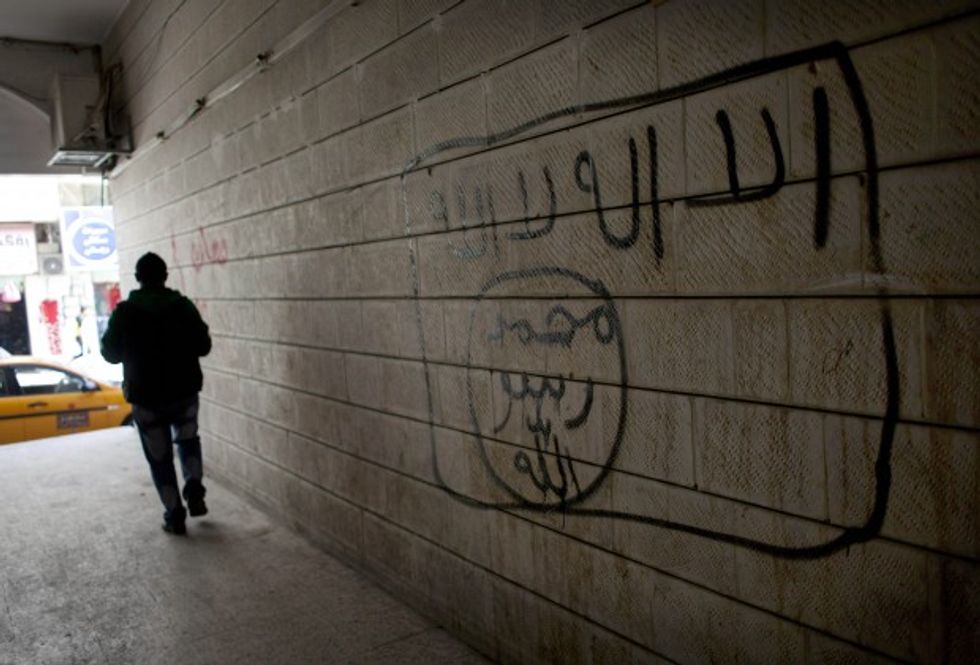 In this photo taken Oct. 28, 2014, a Jordanian man walks past a graffiti depicting the flag of the Islamic State group with Arabic that reads "their is only one God and Muhammad is his prophet," in the city of Ma'an, Jordan. (AP Photo/Nasser Nasser)
In this photo taken Oct. 28, 2014, a Jordanian man walks past a graffiti depicting the flag of the Islamic State group with Arabic that reads "their is only one God and Muhammad is his prophet," in the city of Ma'an, Jordan. (AP Photo/Nasser Nasser)

